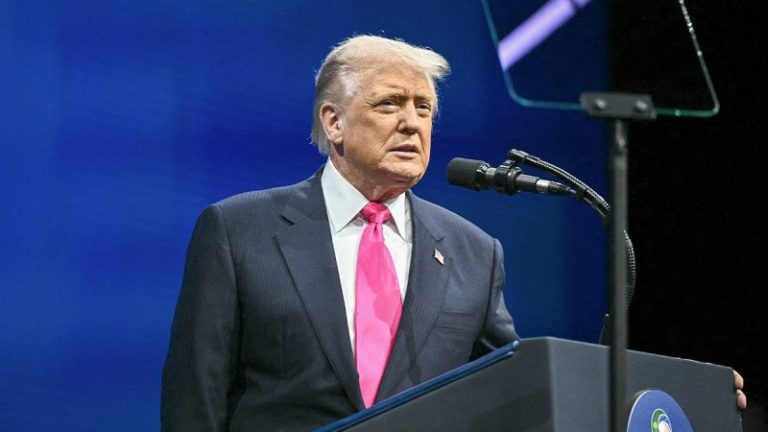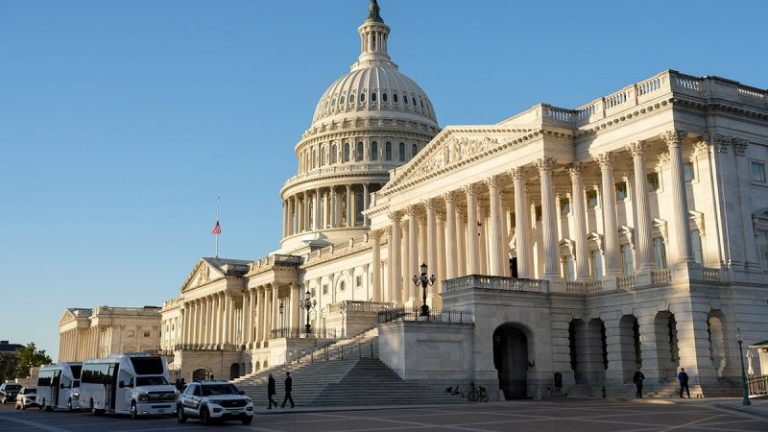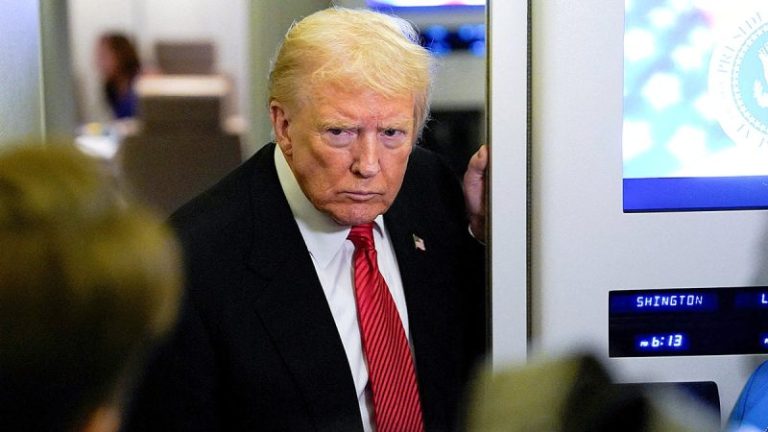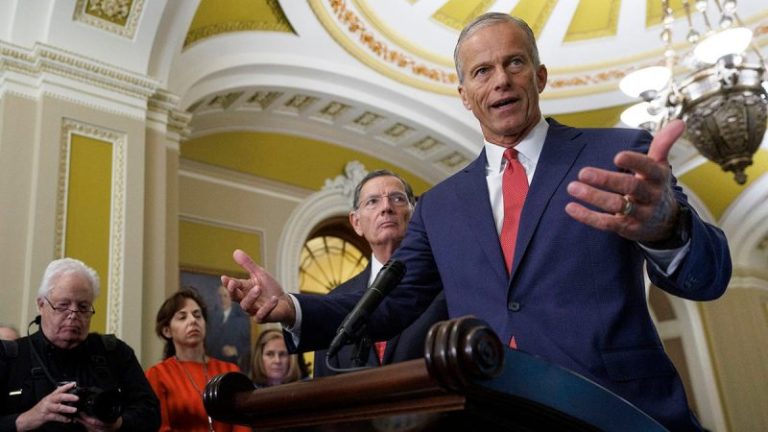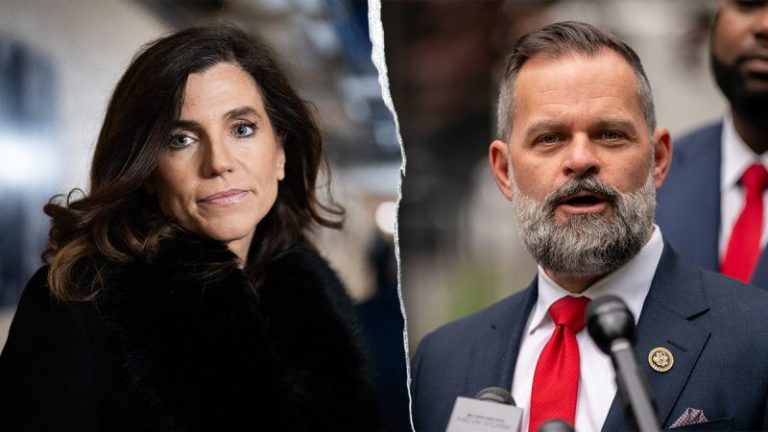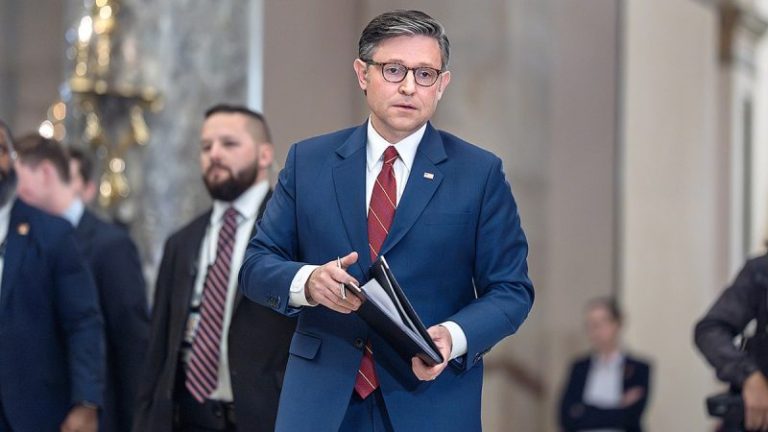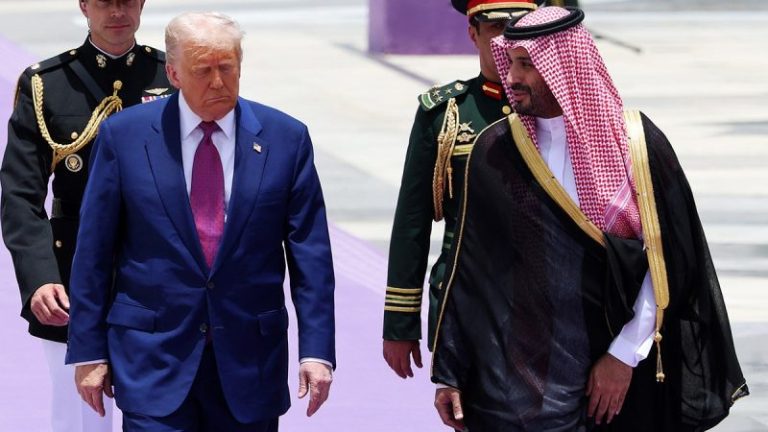Republican legislation brewing in the House of Representatives aimed at addressing civil litigation transparency is sparking concern from some conservative organizations that fear it could chill donor participation and make it more difficult for Americans of modest means to hold ‘woke’ companies accountable.
In a letter sent earlier this week, Tea Party Patriots Action urged the House Judiciary Committee to reject HR 1109, introduced by GOP Reps. Darrell Issa, Scott Fitzgerald, and Mike Collins, which is known as the Litigation Transparency Act of 2025 and is aimed at ensuring greater transparency in civil litigation, requiring parties receiving payment in lawsuits to disclose their identity.
The letter warns that ‘sweeping disclosure mandates in this bill threaten our core American principles of personal privacy, confidentiality, and freedom of speech and association.’
‘This legislation would require litigants to preemptively disclose detailed information about private financial arrangements, such as litigation funding agreements, independent from the discovery process and without any finding of relevance by a judge,’ the letter, signed by over a dozen conservative groups including America First Legal, Defending Education, Heartland Institute, former treasurer of Ohio Ken Blackwell, and American Energy Institute, states.
‘The bill’s forced disclosure mandates would broadly apply to any number of political organizations, religious groups, law firms, or individual plaintiffs that rely on outside support to vindicate their rights.
‘If adopted, H.R. 1109 will have a chilling effect on free speech and association and directly threaten the privacy rights of Americans,’ the letter warns. ‘The end result will be fewer Americans having the resources or willingness to bring legitimate claims, which threatens to undermine future legal battles over issues critical to our movement.’
‘The privacy interests at stake here are not abstract. We have seen how disclosure regimes can be easily weaponized by bad actors, particularly those seeking to attack and intimidate political opponents.’
Issa told Fox News Digital on Thursday afternoon that there is ‘misinformation’ circulating about what the bill actually does and there will be a ‘small update tomorrow to clarify one item.’
‘What’s actually happened is language has been put in to assure groups that we’re not looking to overturn NAACP v. Alabama or any of the other historical 501c privileges that you don’t turn over your donor list and so on,’ Issa said. ‘That was something that Obama and Biden tried to do a couple of times. We want nothing to do with that. We’re only asking that if there is a material funder slash partner in a lawsuit, that they be disclosed.’
‘I fully respect and appreciate the concerns of people who want to make sure that this does not turn into a burdensome discovery of, for example, a nonprofit’s hundreds, thousands or millions of donors,’ Issa explained.
‘We share the concern of all these groups that we wanted to make sure we believed we were on solid ground as written but in an abundance of caution, my staff and all the parties worked to try to come up with the most straightforward, effective way to say, of course, you don’t have to disclose your donors.’
Proponents of the legislation, including the U.S. Chamber of Commerce, call it a ‘vital step toward ensuring that our legal system remains a tool for justice rather than being a playground for hidden financial interests.’
In his press release announcing the legislation in February, Issa said, ‘Our legislation targets serious and continuing abuses in our litigation system that distort our system of justice by obscuring public detection and exploiting loopholes in the law for financial gain.’
‘Our approach will achieve a far better standard of transparency in the courts that people deserve, and our standard of law requires. We fundamentally believe that if a third-party investor is financing a lawsuit in federal court, it should be disclosed rather than hidden from the world and left absent from the facts of a case.’
The press release explained that hundreds of cases a year involve civil litigation funded by undisclosed-third-party interests as an investment for return from hedge funds, commercial lenders and sovereign wealth funds through shell companies and that there are often investor-backed entities who seek hefty settlements from American companies that end up ‘distorting the free market and stifling innovation.’
The conversation about the legislation reignites an ongoing showdown between insurers and large corporations who have made the case that third-party funding drives abusive suits and inflated settlements therefore needing more visibility into funders of litigation and limits to speculative investment in lawsuits against advocacy-oriented nonprofits and legal networks, who argue they are the only mechanism for those without deep pockets to take legal action against well funded companies.
Many advocacy-oriented nonprofits and legal networks don’t simply hand over charitable donations to a lawsuit but instead use structured litigation vehicles, limited liability companies, donor-advised funds, or legal-defense trusts, that front the costs of a case and are reimbursed, sometimes with interest, if the case wins or settles. The process is known as non-recourse or outcome-contingent funding, meaning the funder only gets money back if the case succeeds.
Nonprofits like Consumers’ Research have been using litigation finance in recent years to push back against ‘woke capitalism’ to counter ESG and DEI policies and the group’s executive director, Will Hild, told Fox News Digital that it has been ‘all too easy for major companies to use their outsized influence and powerful market shares to push an ideological agenda with little to no recourse.’
Hild told Fox News Digital he views the legislation an ‘attack’ on one of the ‘few tools Americans have to hold powerful, woke corporations accountable.’
Hild added, ‘Even worse, it imposes dangerous disclosure mandates that would force plaintiffs to expose confidential litigation funding agreements. This bill blatantly tips the scales in favor of woke corporations and makes it far harder for victims to secure the resources they need to fight back.’
The letter from the conservative groups also expresses fear that ‘compelled disclosure of private financial arrangements would force litigants to unveil the identity of donors — violating donor privacy rights and exposing them to threats of harassment and retaliation.’
In a Tuesday op-ed in The Hill opposing the legislation, Alliance Defending Freedom founder Alan Sears pointed to Supreme Court decisions that he says have ‘affirmed that forced disclosure of private association undermines fundamental freedoms.’
In a statement to Fox News Digital, Rep. Fitzgerald said, ‘As reiterated to these groups in multiple discussions, it remains Congress’ intent to protect the First Amendment rights of those who contribute to political groups and religious organizations, consistent with the Supreme Court’s opinion in Citizens’ United.’
Organizations that have endorsed the bill have pointed to concerns about foreign funding in courtrooms, specifically from China, including High Tech Investors Alliance who said in a press release they ‘commend’ the legislators who put it forward for ‘defending American businesses against the exploitation of our courts by foreign adversaries and unscrupulous hedge funds.’
‘For too long, a lack of transparency has allowed shell entities to manipulate the legal system to prey on American employers, concealing their predatory practices and identities of their financial backers,’ HTIA said. ‘As President Trump takes bold action against aggressive economic maneuvers by China and other countries, Congress must also act decisively to protect our judges and juries from becoming tools in the economic warfare waged by antagonists.’
Leonard Leo, who operates a vast network of conservative nonprofits and is tied to Consumers’ Research, told Politico earlier this year that ‘while there are areas, like mass tort, where litigation financing has been abused, and could be reformed, it has always been a critical tool for the conservative movement to advance the public good by taking on the liberal woke agenda.’
The House Judiciary Committee did not mark the bill up Tuesday and Fox News Digital is told it will be marked up on Thursday at 12 p.m.
‘If someone is acting as a principal litigant, either directly or one step removed, then you have a right to face them, you have the right to cross-examine them, you have a right to know if they receive your trade secrets that were exposed and disclosed in litigation, these things are all important,’ Issa said, adding that the legislation does not require materials to be turned over to the defendant and a judge can review them in camera, a legal term for in private.
Issa continued, ‘We just want to make sure that the judge knows that just as the markman is a required part of determining what a patent means, that it’s a responsibility of the judge to determine who the litigants are and, as appropriate, disclosing them is required — and that last part has always been ignored a little bit, we’re only making sure that that discovery is asked for and evaluated at a minimum by the judge or magistrate overseeing the case.’
This post appeared first on FOX NEWS


